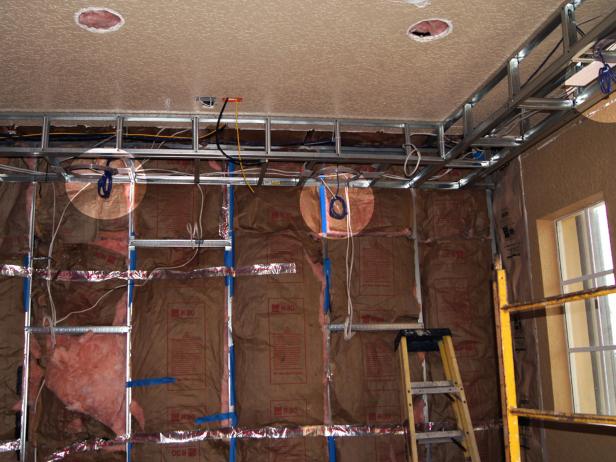Home Theater Wiring

Brian Patrick Flynn
When it comes to home theater installations or redesigns, one of the chief considerations is home theater wiring. Whether you're having your home theater professionally installed or choosing to embark on a DIY adventure for your entertainment space, ensuring that the wiring is installed safely, correctly and discreetly is one of the most important aspects of home theater design.
Home Theater Designs
See All PhotosGenerally speaking, home theater wiring will relate to two key elements of your home theater setup: electronics and lighting. Both of these features are essential to the home theater experience and need to function properly, reliably and conveniently in order for guests to sit back and enjoy the show. Additionally, you'll want to avoid any unsightly tangles of wiring so they don't ruin the aesthetic design of your home theater and cause a potential safety hazard.
If you're considering a self-install of your home theater wiring, it's highly recommended that you consult an electrical professional before doing so. Unless you have extensive electrical engineering expertise, it can be dangerous to attempt a fully DIY home theater wiring project. Even if you do have experience, it's advisable to consult a home theater professional who's certified through the Custom Electronics Design and Installation Association (CEDIA). A professional will be able to ensure that you're meeting safety standards, as well as recommend materials and techniques to increase the reliability and performance of your home theater's wiring.
You'll also need to make sure that your wiring is up to local and national codes, whether you're installing it yourself or you've hired a professional. You can find the National Electric Code (NEC) at most booksellers or online, but know that many localities have additional statutes that you'll need to follow. For example, if you'll be prewiring the space before you install drywall and insulation, your locality will potentially require an inspection while the wires are still accessible.
Once you've got all the safety and inspection items sorted out and decided on a DIY or professional installation, you'll want to start thinking about your lighting and electronics setup within the space, which will likely determine the layout of your wiring. Things like the number of guests, type, size and layout of furniture, the location and size of your TV or projection screen, and the type and quantity of lighting will be key considerations.
When the plan is in place for the wiring layout for your lighting and electronics, you'll need to decide how your lighting scheme is going to be controlled. Your options here will be broad, particularly for new construction home theaters—you could choose anything from a hard-wired in-room control system to a smart-device-controlled system linked to a whole-home automation system. The varying control schemes are attached to differing tiers of cost and complexity, so you'll want to explore the full range to determine which one is right for your home theater's wiring scheme.
See Also: Planning Your Own Home Theater



















































